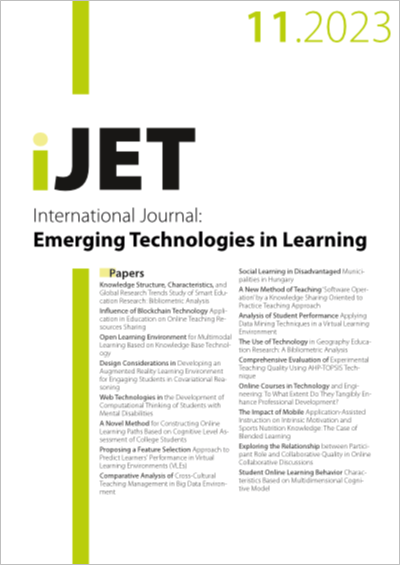Online Courses in Technology and Engineering: To What Extent Do They Tangibly Enhance Professional Development?
DOI:
https://doi.org/10.3991/ijet.v18i11.34833Keywords:
MOOCs, MENA region, COVID-19, motivations, challenges, interactions, achievementsAbstract
Platforms for online courses including Massive Open Online Courses (MOOCs) have become the most remarkable well-built environment for teaching and learning. Until recently the various types of online courses have been an optional and supplementary source of gaining knowledge and skills to compensate the learning lose in formal education, either for students or professionals. COVID-19 brought unprecedented disruption to the education industry. Work integrated learning in very essential fields, namely, technology and engineering, did not take place. Despite the fact that MOOCs boosted formal education by providing online courses, the learning loss had already been maximized. This research addresses the motivations, challenges and interactions as well as the tangible and intangible impacts of technology and engineering online courses on MENA (Middle-East and North Africa) professionals; and to what extent have these courses been able to promote professionals to a new development in their careers? A survey questionnaire with standardized closed-ended and open-ended questions was conducted online with 66 professionals who have been purposely selected. The analysis of responses and findings show that the desire to develop and enhance knowledge previously acquired is the most important motivation. The results also showed weakness in the tangible achievements of the participants, and most of the achievements were the enhancement of knowledge. In spite of the set of challenges and inadequacies in achievements, the online platforms are providing a valuable well-built environment for life-long learning to advance knowledge, skills and to compensate for lost learning.
Downloads
Published
How to Cite
Issue
Section
License
Copyright (c) 2023 Arwa Y. Aleryani, Abdullatif A. AlMunifi

This work is licensed under a Creative Commons Attribution 4.0 International License.


